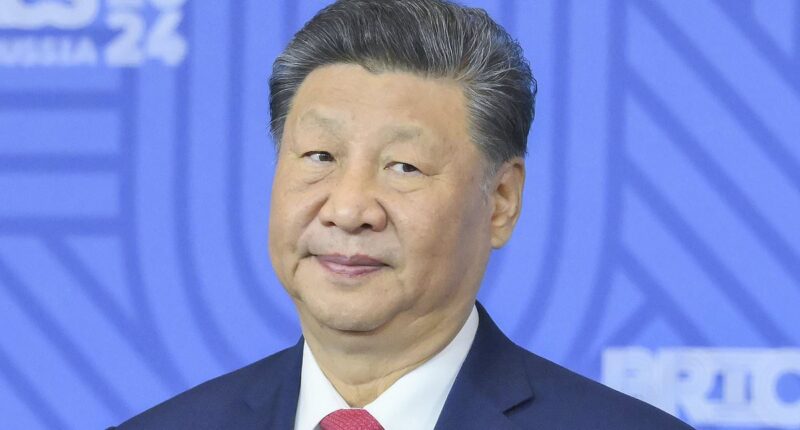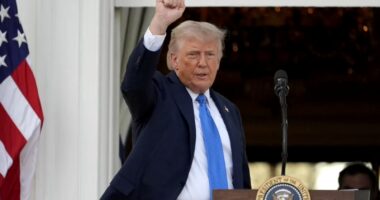China has been secretly halting exports of major U.S. commodities in a stealthy attempt to undermine Donald Trump’s trade war and punish Americans.
Politico reported that while Beijing has imposed a 125 percent tariff to match Trump’s, they are also employing nontariff barriers targeting the president’s supporters the most.
Over the past four months, China has halted or significantly curtailed direct key U.S. agriculture and energy exports.
Many of these exports include U.S. farm goods, such beef, poultry and liquified natural gas.
These barriers impact resources primarily sourced from red states where the majority of voters are Trump supporters. China seems to be strategizing that any resulting economic pain in these regions could weaken support for the president.
Ben Lilliston, the director of rural strategies and climate change at the Institute for Agriculture and Trade Policy, highlighted the difference between tariffs and nontariff barriers. According to him, tariffs increase costs, whereas nontariff restrictions completely block the ability to export products to a specific country.
China declined to renew export licenses for hundreds of meatpacking plants, claiming the products are genetically modified or unsanitary.
The escalating trade war reached a fever pitch last week when the president boosted the tariffs on China to a whopping 125 percent.
Trump did grant some relief by sparring iPhones, laptops and other electronics from his brutal tariffs, with the majority of those gadgets made in the communist nation.

The escalating trade war reached a fever pitch last week when Donald Trump boosted the tariffs on China to a whopping 125 percent

China has been using nontariff barriers to hit the president’s supporters the hardest, including halted or significantly curtailed direct key U.S. agriculture and energy exports
National Chicken Council spokesperson Tom Super told Politico that China has relied on nontariff barriers ‘for years,’ and called China’s claims about sanitary concerns ‘bologna.’
‘The antibiotic cited by Beijing has been banned in U.S. chicken production for decades,’ Super said, referencing the banned antibiotic furacilin, China says it found repeatedly in shipments from Mountaire Farms.
Experts said China is using their health complaints to mask their real intentions of hitting back in the trade war.
‘You don’t want to see health and safety turned into political bargaining,’ said Darci Vetter, who was chief agricultural negotiator in the Office of the U.S. Trade Representative in the Obama administration. ‘It turns carefully considered barriers based on science into a political issue.’
‘This is what China does — trade action masquerading as legit public policy based on science,’ said Marc Busch, who has advised both USTR and the Commerce Department on technical trade barriers.
The method gives Beijing ‘two bangs for the buck — plausible deniability and lethality,’ Busch added.
‘These nontariff measures allow China to maintain that veneer of, “We’re just following the rules — we have legitimate reasons to do these things,”‘ said Greta Peisch, former general counsel of the Office of the U.S. Trade Representative. ‘It’s part of China’s narrative, and it should be of concern.’
China has also targeted the natural gas industry but quietly stopping their U.S. imports, data from commodity analyst firm Kpler found.

Many of these exports include U.S. farm goods, such beef, poultry and liquified natural gas, that come from rural areas where workers voted for Trump
The analysis showed that so far this year has imported just one cargo of gas, compared to 14 cargoes during the same period of 2024.
‘Since the last U.S.-China trade war, China has deliberately positioned its [liquefied natural gas] market as a geopolitical lever, preparing to weaponize it if relations with Washington soured again. That moment has arrived,’ said Leslie Palti-Guzman, energy security and climate change analyst at the Center for Strategic and International Studies.
Trump’s approval rating has started to drop amid the escalating tariff war and market turmoil.
The Rasmussen Reports daily Presidential Tracking Poll on Friday showed Trump’s approval rating at 48 percent – down from the high water mark at the start of his term of 56 percent.
On April 1 – the day before his ‘Liberation Day’ tariffs were announced – he still had a a positive approval rating of 51 percent.

















